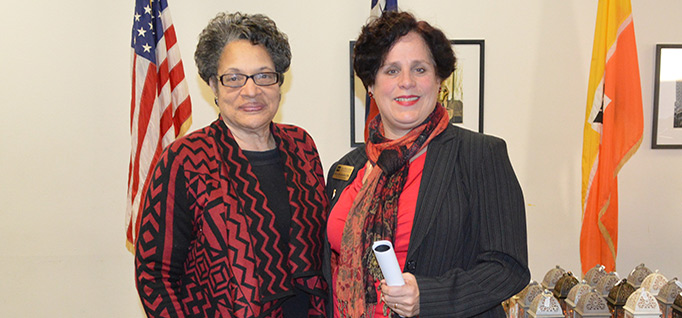Growing your own leaders
By Ellie Ashford
August 3, 2016
Community colleges are investing in on-campus professional development programs to help prepare the next generation of leaders.
Preparing new leaders is critical because Baby Boomer presidents are rapidly retiring, and there’s a dearth in the leadership pipeline to filling those vacancies, says Don Hunter, president of National Search & Education Consulting and former executive director of the North Carolina Association of Community College Trustees.
Many community college vice presidents are also reaching retirement age, and those positions are even harder to fill, Hunter notes.
Although a growing number of colleges are starting their own programs, leadership training within a college can be tricky, Hunter says. Colleges still need to advertise an opening to find the best person for the job. Even though they don’t promise to promote participants in a leadership academy, staff may think they’re going to get the job if they do the training.
Nevertheless, “leadership training is one of most important things we do,” Hunter says.
Here are some colleges with grow-your-own programs:
Fayetteville Technical Community College (North Carolina): The first year of the two-year President’s Leadership Institute at FTCC consists of weekly, intensive classroom sessions for about three months.
The first part of the program covers personality, leadership and communication styles. It is followed by sessions on the North Carolina community college system; the various components of FTCC, including the budget process; academics and facilities; how to interact with the media; and the role of trustees.
During the second year, participants split into small teams to work on a case study involving a particular issue the college is facing. Some teams’ recommendations have been adopted, including a plan to use more technology in the college’s human relations system, develop a more effective student services system and a proposal to internationalize the curriculum.
Greenville Technical College (South Carolina): The annual week-long institute is held in the community but away from the college. About 25 people attend, ranging from vice presidents to groundskeepers and clerical staff. Employees can apply for the leadership institute, but most participants are recommended by a supervisor.
While the agenda covers college operations, it’s mostly about strategic issues, innovation and transformation. At the end of the institute, participants select a long-term project to work on over the next year or two. Members of last year’s institute are developing a program to pair every student with mentor.
Cedar Valley College (Texas): The President’s Leadership Academy that trains about 15 of what she calls “the brightest of the bright” about “the meaning of leadership at Cedar Valley.”
Participants – vice presidents, other administrators or faculty members – have to be nominated by their supervisor as having the capability to advance to a leadership position.
The academy includes a group project. Last year’s assignment was to answer the question, “What would Cedar Valley look like if it was the best place to work?” To start, they read the book “Change the Culture, Change the Game” by Roger Connors and Tom Smith, then they considered what behaviors to drop and which ones to continue. They also explored the college’s 10 values – such as integrity, accountability and civility – and developed a skit illustrating what it means to embrace each of them.
This year’s class was asked to develop a visual representation related to the college’s mission. The focus this year was on students, and participants worked on a plan to get faculty more involved in extracurricular activities.
Cedar Valley also has a succession-planning process that calls for the leadership to identify critical positions the college is struggling to fill, such as an academic dean. Employees are given an opportunity to do that job for a semester, as long as they can meet the minimum requirements, President Jennifer Wimbish says.
You can learn more about these programs in this CC Daily article.
Continue the conversation on our LinkedIn group.
Photo: Cedar Valley College President Jennifer Wimbish (left) with Maria Boccalandro, interim dean of instructional support and distance education, at the college’s 2015 Leadership Academy graduation.


